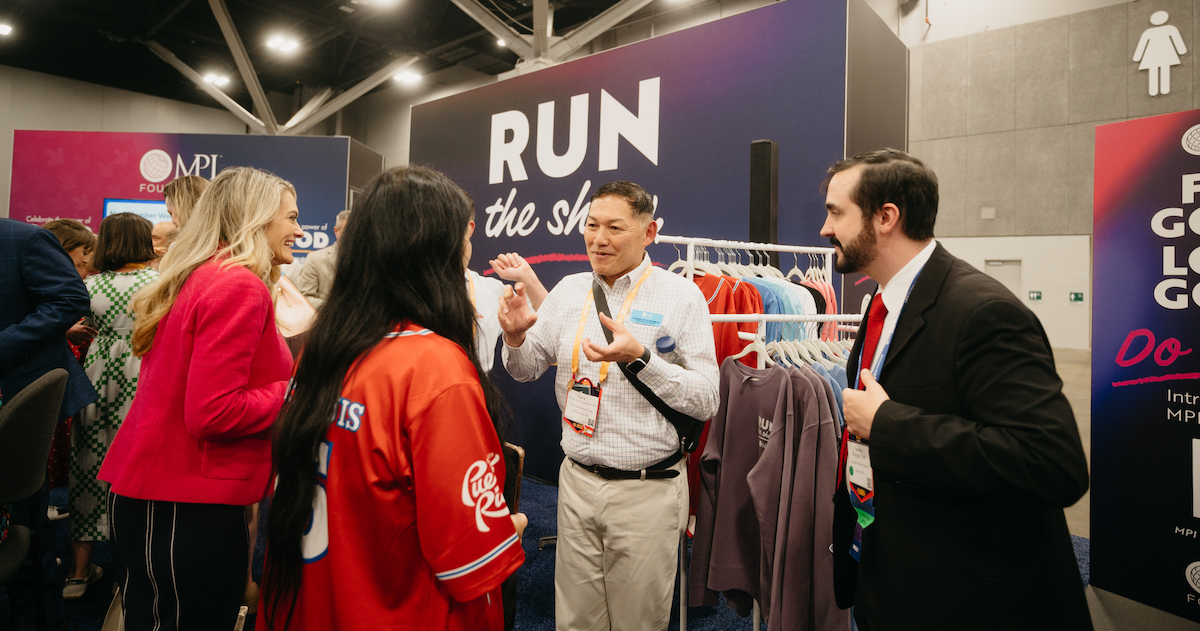[This article was originally published on our affiliate site PlanYourMeetings.com.]
It’s a stressful world event professionals inhabit daily. Event planning is the fifth-most stressful job in the U.S. according to Careercast’s 2016 most stressful jobs list. Whose jobs are more stressful than yours? Enlisted military personnel, firefighters, airline pilots and police officers—not exactly the list you want to be on.
Hopefully your stress level isn’t in the Top 5 spectrum, but trust me, I get it. Planning and executing professional events is a demanding job that requires a unique set of skills—attention to detail, people skills, time management, problem-solving, flexibility, creativity, resourcefulness, passion, grace under pressure—just to name a few.
Although the demands of coordinating an event are always going to be stressful, experiencing the success of a well-executed event that resonates with its audience and accomplishes their goals helps alleviate some of it. Once you have achieved a formula for success, you can apply it repeatedly, and make planning each event less stressful.
Event Marketing Begins and Ends with Knowing Your Audience
Everything you do to market your event follows from knowing your audience. Your customers are your audience and today you need to know who they are in much deeper ways than ever before. It is important to reach them in the right places at the right times in the right ways to convince them to attend your event.
The first step in identifying your audience is to outline the different personas that your event is looking to address. There may be one or more groups you are looking to target. From here, there are important characteristics to know about them in order to tailor your event to them.
-
Determine their demographics such as age group and gender.
-
Analyze their mindsets, needs, wants and interests. Know their goals and expectations at the professional events they go to.
-
Identify their roles within their companies or organizations. Be sensitive to the challenges they face and how you can address them.
-
Predict your audience’s motivation for attending conferences, conventions, trade shows, etc. Know what criteria they use to decide which events to attend.
-
Find the best place to interact and market your event to them.
Communicating Your Message to Your Audience
Once you know the ins and outs of your target audience, the next step is to identify how and when you communicate with them. Different audiences respond to different manners of communication. Consider the following:
-
Email lists are an easy, inexpensive place to start. Create different email lists for different segments of your target audience and tailor your communications to these different segments.
-
Use social media to market your events. Identify which social channels your target audience uses the most and communicate a consistent, continuous message before, during and after your event.
-
Use marketing tools to automate your campaigns, track data and create a repeatable process for communicating to your target audience for each event you plan.
I get the many demands and challenges meetings and event pros face. I’ve learned a lot, but, of course, have a lot to learn. I’m hoping you will share your biggest challenges—the things that cause you the most stress and the tools you wish you had that would make your job easier.
Stay tuned as I’ll be sharing event marketing best practices with the Plan Your Meetings community each month. Event marketing is just one piece of the puzzle for most of you, but it’s a crucial one. I hope by sharing event marketing tips each month and asking questions to spark discussion we can create a forum for you to share and learn from your peers, and the keeping-up-with-how-to-market-your-events aspect of your job will be less stressful for you.







